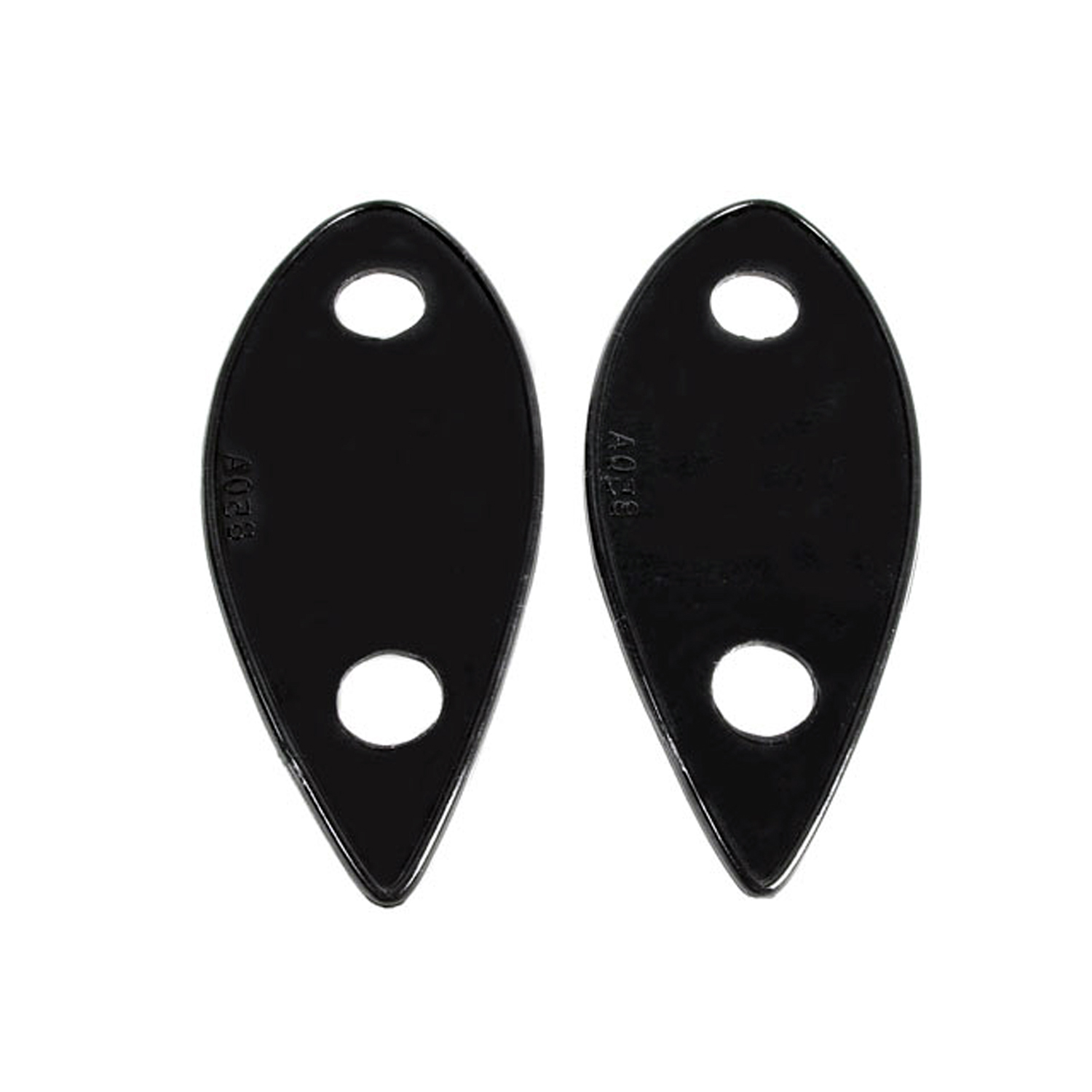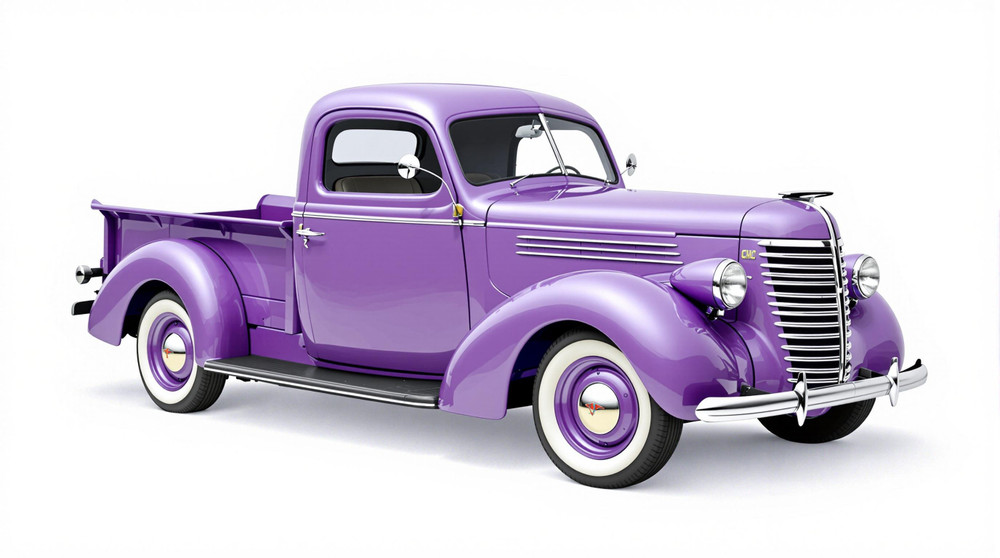Image of 1938 Gmc Ac150, Note: These illustrations use artistic license and may differ from actual historical models.
Performance Metrics
Fundamental Metrics
Emotional Appeal
MMP Rating
| Engine Specifications | |
|---|---|
| Engine Options: | Inline 6-cylinder |
| Displacement Range: | 230-235 cubic inches |
| Horsepower Range: | Estimated 75-85 hp |
| Torque: | Estimated 150-160 lb-ft |
| Compression Ratio: | 6.5:1 |
| Ignition System: | Distributor and coil |
| Cooling System: | Liquid-cooled |
| Performance Specifications | |
| 0-60 Time: | Not available due to the age of the vehicle |
| 1/4 Mile Time: | Not available due to the age of the vehicle |
| Top Speed: | 55-60 mph |
| Transmission and Drive | |
| Drive Type: | Rear-wheel drive |
| Transmission Type: | 3-speed manual |
| Fuel and Efficiency | |
| Fuel System Type: | Carburetor |
| MPG: | Estimated 10-12 mpg |
| Dimensions and Brakes | |
| Brakes: | Drum brakes |
| Wheelbase: | 125 inches |
| Weight: | Estimated 3,000-3,500 lbs |
Note: Specifications for classic cars are given to the best of our ability, considering the limited and variant data available.
The 1938 GMC AC150: A Testament to Enduring Craftsmanship
Stepping into the realm of vintage automotive excellence, the 1938 GMC AC150 stands as a paragon of pre-war design and engineering. Born from the assembly lines of General Motors Truck Company, this vehicle emerged during an era where craftsmanship met utility in an elegant dance. As America rebounded from the Great Depression, the AC150 served as a symbol of resilience and innovation, capturing the spirit of a nation on the cusp of monumental change. Notably, it was during this period that GMC solidified its reputation for producing reliable heavy-duty trucks, with the AC150 playing a pivotal role in cementing this legacy.
Design and Innovation
The 1938 GMC AC150's exterior styling was a harmonious blend of form and function. Its robust grille, commanding stance, and pronounced fenders exuded strength while retaining a sense of streamlined elegance that was characteristic of the late 1930s design ethos. Inside, drivers were greeted with a no-nonsense dashboard and durable materials built to withstand the rigors of frequent use. Although not luxurious by today's standards, the interior offered practicality and comfort that were ahead of its time. Technological features such as synchronized transmissions were beginning to make their way into trucks like the AC150, offering smoother gear shifts and improved drivability. Color options were typically utilitarian, with hues such as dark greens, blues, and blacks being popular choices that underscored the vehicle's workhorse nature. The most iconic body style for the AC150 was arguably its pickup configuration, which showcased both versatility and rugged charm.
Historical Significance
The 1938 GMC AC150's historical significance lies in its embodiment of American industrial prowess during a transformative period. It set itself apart with its robust build quality and reliability—a testament to GMC's commitment to excellence. The truck's influence can be seen in subsequent designs that prioritized functionality without sacrificing aesthetics, paving the way for future generations of versatile commercial vehicles.
Performance and Handling
In terms of performance, the 1938 GMC AC150 was more about torque than outright speed, engineered to haul heavy loads rather than win races. Nevertheless, its top speed and steady acceleration were respectable for its class and time. On various driving conditions, from bumpy rural paths to burgeoning urban roadways, the truck maintained composure thanks to its sturdy suspension system. Driving an AC150 was a sensory experience; from the distinct rumble of its engine to the tactile feedback through its large steering wheel—each journey was an interaction between man and machine that modern vehicles struggle to replicate.
Ownership Experience
Owners of the 1938 GMC AC150 typically used it as a daily workhorse or took great pride in restoring it for show car status. Its maintenance demands were straightforward by contemporary standards, making it relatively easy for owners to keep it running with basic mechanical knowledge. However, finding original parts today can pose a challenge for restorers seeking authenticity.
Fun Facts
A fascinating trivia about this model is that despite its commercial origins, it has found its way into private collections and even gained attention in classic car shows for its historical value. While not known for breaking speed records or dominating sales charts at its time of release, it has endured as a beloved piece of Americana. Critics at the time might have pointed out its lack of creature comforts compared to passenger cars; however, such criticisms miss the point—the AC150 was built to work.
Collector's Information
Today, estimating the value range for a 1938 GMC AC150 can be challenging due to its rarity; however, well-preserved or expertly restored examples can fetch significant sums from dedicated collectors. The production numbers were modest by today's standards; thus finding one on the market is a rare event indeed. As for price trends over time, vehicles like the AC150 have seen an appreciation in value as interest in pre-war trucks continues to grow among classic car enthusiasts. Depending on condition and originality, one could expect such a vehicle to sell anywhere from mid-five figures for a project vehicle up to six figures for a concours-quality restoration.
Conclusion
The 1938 GMC AC150 is more than just an old truck; it is a rolling testament to an era when durability meant everything and vehicles were built to last. Its legacy endures not only in design but also in spirit—as it continues to captivate those who appreciate the intersection where history meets mechanical artistry.
1938 Gmc Ac150 Catalog of Parts
 1938 GMC AC150 Headlight Pads. 2-3/4" wide X 6-3/8" long. Pair-MP 850-AHeadlight Pads. 2-3/4" wide X 6-3/8" long. Pair
1938 GMC AC150 Headlight Pads. 2-3/4" wide X 6-3/8" long. Pair-MP 850-AHeadlight Pads. 2-3/4" wide X 6-3/8" long. PairWhy Choose Metro?
For over 100 years, Metro Moulded Parts has been the pinnacle of quality in classic car restoration parts. Our commitment to precision and authenticity in every component ensures a perfect fit and an OEM-level appearance.
- Expert Craftsmanship & Quality: Each part is a testament to our dedication to reliability and perfection, crafted from original designs and thoroughly tested.
- Advanced Technology: We use cutting-edge techniques to create flawless, long-lasting parts that surpass others in performance.
- SuperSoft Sponge – The Ultimate Door Seal: Not only are our door seals 30% softer than competitors', but they're also guaranteed to never leak. They effectively reduce wind and road noise, enhancing your classic car's comfort and driving experience.
- Proudly American: Our parts are a product of American craftsmanship, made in the USA with a spirit of excellence and heritage.
- Unrivaled Warranty: We back our products with a 30-year industry-leading warranty, a testament to our confidence in their quality.
Join us in preserving the legacy of classic cars with parts that are crafted for perfection, not just made.

